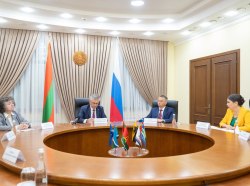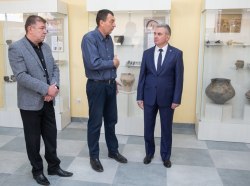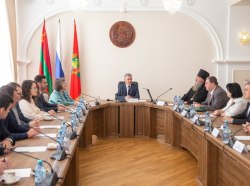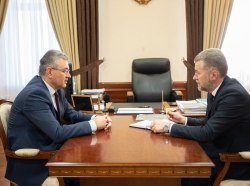Tiraspol, 8 February. /Novosti Pridnestrovya/. Issues of financing national science, support of young scientists and professional training of researchers were discussed today at the House of Official Receptions during the meeting of the president with the scientific community.
Ahead of Science Day, Vadim Krasnoselsky invited the leading scientists of the country to discuss the current problems of the country's academic sector, which is one of the main factors in the development of human capital. Representatives of the Presidential Administration, Government and Supreme Council also took part in the discussion.
The subject of training personnel for national science was raised by the rector of the country's leading university - Shevchenko Pridnestrovian State University (SPSU) - Stepan Beril.
"We have a system for training personnel, but there is no final link - those [dissertational] committees, where our candidates and doctors of science would be protected," he explained.
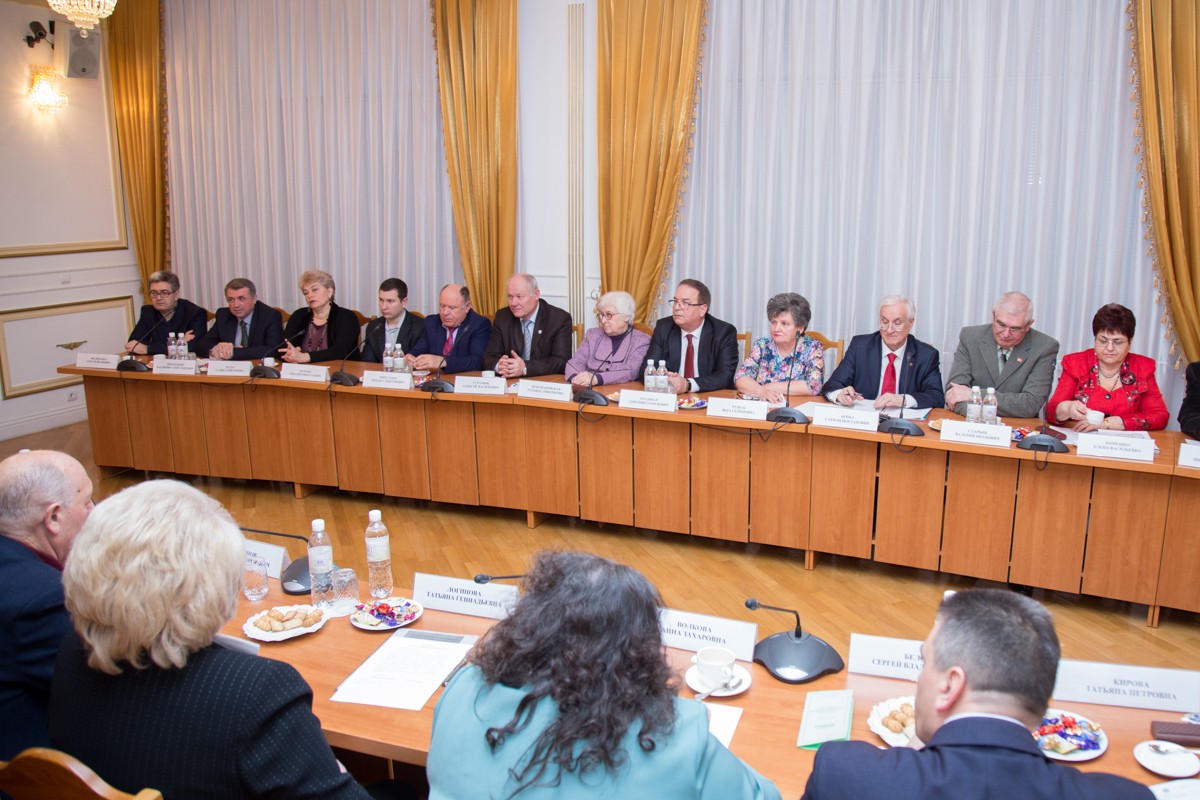
Today, Pridnestrovian academic degree applicants are compelled to defend their theses in Russia and foreign scientific centres. At present, 112 people are studying at SPSU's post-graduate courses, whereas 54 employees of the university are studying for their degrees at the leading universities of Russia. For the past ten years, our researchers have defended 106 candidade and six doctoral dissertations. At the moment, 34 more researchers are working on their doctoral dissertations.
Beril asked the president for assistance in establishing a dissertation committee in Pridnestrovie, which would significantly reduce the applicants’ transport and organisational costs. Such committees, according to the rector, can be established with the participation of professors of Lomonosov Moscow State University, with which Tiraspol is actively interacting today.
Vadim Krasnoselsky promised to discuss this issue with Russian Deputy Prime Minister Dmitry Rogozin, Russia's special envoy for Pridnestrovye.
"Let's start with this, and then we will invite the government to resolve specific issues," the president said, stressing that the country primarily needs to develop applied sciences.
A special emphasis, according to Vadim Krasnoselsky, must be put on developments in the field of agro-industrial complex.
"Pridnestrovie is an agrarian country. The land is our main asset. Scientific research should be aimed at enhancing the efficiency of agriculture. Self-sufficiency in this area will allow us to survive any economic crisis," noted the president.

Another topic of discussion was the problem of practical implementation of scientific results. Over the past five years, SPSU scientists have developed about 100 innovative investment projects and patented more than 70 inventions. However, many of them are yet to be implemented.
The problem can be solved, according to the interlocutors, through appropriate state orders and increased spending on science. Currently, government spending on research in Pridnestrovie is about 0.2% of GDP. For comparison, in the Republic of Korea, which ranks first in the R&D-to-GDP ratio, this indicator amounts to 4.29%. The US, which is the world leader in terms of domestic expenditure on research and development ($ 457 billion annually), spends 2.90% of GDP in this sphere, while Russia spends only 1.13% ($ 40 billion per year).
This year the republican fund for the development of science is planned at a rate of 1 million roubles, of which 351,000 roubles will be spent on research and 649,000 roubles on technical and software support.
According to the researchers, these funds can be redistributed to support young professionals. Talented and promising students, they note with regret, are often forced to abandon scientific careers because of material problems.
Vadim Krasnoselsky agreed with their proposal and instructed the Ministry of Finance to study the matter within two weeks and draft a corresponding decision.
At the same time, Mikhail Burla, a member of the Supreme Council, explained that the parliament was considering a government bill "On Autonomous Institutions", which would allow higher education institutions to independently distribute their incomes and use them to finance scientific research. The Ministry of Education has already studied the application of a similar law in Russian regions, Burla noted.

The finance minister, Tatyana Kirova, also backed this bill.
"We believe that the law will enable the university to develop more intensively and create additional sources to provide the material and technical base as well as other spheres," said Kirova.
Another possibility to improve the financing of Pridnestrovian science could be Russia's grant system. This idea was expressed by Professor Vladimir Sheptitsky, Doctor of Biological Sciences, Corresponding Member of the Russian Academy of Natural Sciences. His scientific developments in the field of microbial biopreparations, which can increase the adaptive capacity of the organism, have already interested representatives of the Skolkovo tech park.
As was noted during the discussion, grants for scientific research are now offered by the Russian Foundation for Basic Research, the Russian Humanitarian Scientific Foundation and the Russian Presidential Science Foundation. Today their resources fill the gaps in public funding for R&D, but to obtain grants it is necessary to submit a competitive application.




